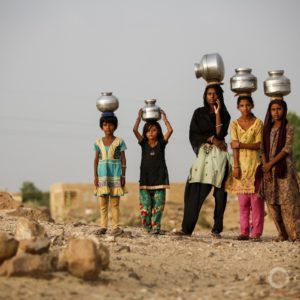The Stream, July 7: Water Still At Risk As Malaysia Bauxite Mining Ban Ignored
The Global Rundown
Bauxite mining appears to be continuing in Malaysia, despite a ban meant to protect water supplies. Communities in rural California are still struggling with dry wells even after the drought’s end. Farmers in South Africa are raising concerns about water supplies as the country prepares to issue shale gas licenses for the Karoo. New research suggests the Sahel region in Africa could become wetter with extreme climate change. A separate study also found that parts of California could receive more precipitation by the end of the century. Extremely heavy rainfall in Japan turned deadly over the past two days.
“So, the drought is over? What about us? What about the plans to hook up to Madera’s water? How long will we have to wait now? The drought might be over for you, but it isn’t over for me.” –Evelyn Rios, a resident of Madera County, California, commenting on the continuing struggles of rural communities where wells have run dry. (News Deeply)
In context: In California’s Central Valley, dry wells multiply in the summer heat.
By The Numbers
556 millimeters Amount of rain that fell in a 40-hour period over Fukuoka prefecture in Japan, 1.6 times the amount the area normally receives during the entire month of July. The storms killed three people and displaced 100,000. Reuters
9 million metric tons Amount of bauxite Malaysia has exported to China since implementing a bauxite mining ban 18 months ago. While exports were allowed to deplete stockpiles, those stockpiles have not gotten any smaller. Officials and analysts therefore believe that miners are circumventing the ban, which was put in place to safeguard water supplies and the environment. Reuters
12 percent Average increase in precipitation that could occur in California through 2100, according to a new study published in the journal Nature Communications. Researchers say the findings are “quite surprising,” though the increases will be felt unevenly. Science Daily
Science, Studies, And Reports
Global warming above 2 degrees Celsius could dramatically alter the face of the Sahel region in Africa, according to researchers at the Potsdam Institute for Climate Impact Research. They found that the arid region could become much wetter, but warned that the change would likely be accompanied by unpredictable droughts and floods, posing a “huge adaptation challenge” for the area’s 100 million residents. Reuters
On The Radar
As South Africa prepares to issue several exploratory licenses for natural gas drilling in the Karoo region, farmers are raising concerns. The group Agri SA, an agricultural industry association, has said it cannot support shale gas drilling without more information about where drillers will get water supplies and how land will be reclaimed. Bloomberg
In context: Karoo uranium, fossil energy development defies water scarcity and reason.
A news correspondent for Circle of Blue based out of Hawaii. She writes The Stream, Circle of Blue’s daily digest of international water news trends. Her interests include food security, ecology and the Great Lakes.
Contact Codi Kozacek





